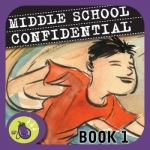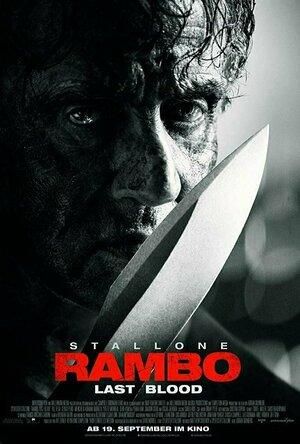
Montessori Counting Board
Education and Games
App
A magical and revolutionary app at an unbelievable price. The best way to learn to count. Hands...

NIV Study Bible
Book and Reference
App
Welcome to the all new, full-color NIV Study Bible! The world's bestselling, most comprehensive...

MSC1: Be Confident in Who You Are
Book and Education
App
Now for iPhone and iPad! • “As you prepare for back to school, don't forget the anxiety...[this...

QuickReader - Speed Reading
Book and Productivity
App
If you’d like to read faster than you ever thought possible… racing through novels, business...

Mechanic Mike - First Tune Up
Games and Entertainment
App
~~> All in one garage game! Fix, upgrade, paint and even get an X-ray test for your car. ~~> Get on...
Darren (1599 KP) rated Rambo: Last Blood (2019) in Movies
Sep 26, 2019
Performances – Sylvester Stallone is back in one of his favourite franchises, he does keep John looking a lot more like a true veteran that is still haunted by his nightmares of war, even if he is mumbling his way through the film. Yvette Monreal fills her role with ease, naïve young girl, while both Oscar Jaenada and Sergio Peris-Mencheta don’t put a foot wrong in the villainous roles.
Story – The story here follows a retired calm John Rambo that is called into action when his adoptive daughter gets taken by a gang in Mexico and he will go to any lengths to get his revenge at save her. When it comes to this style of action film, the story doesn’t need to be very deep at all, in fact the basic plot is broken down as war veteran takes on gang who took family member, lots of bodies left lying. We do get glimpses at the idea that John is still dealing with the traumas of his experiences in war, though they are very small, if we didn’t have these, we could have easily have had just another older military person doing the same thing, it didn’t need to be Rambo for the most part. Saying this, it was nice to see Rambo returning to what made his actions popular in the First Blood, with his stealth ability over the countless bullets flying around. This is everything you want and need from a Rambo movie when it comes to the story.
Action/Western – The action in the film does take it time to get going, but when Rambo starts, my word this is one of the most graphic action movies you will see, certain sequences will make John Wick’s kills look like a Disney movie.
Settings – The film does use the Mexico setting for the fish out of water when it comes to John wanting to take the fight to them, so he makes them bring to the fight to him, showing us how deadly he is when he knows the land. The settings are key to the final act of the movie.
Special Effects – The effects are brutal, when it comes to the injuries people were wincing in the cinema at certain moments, they don’t hold back in anyway.
Scene of the Movie – Whole final act.
That Moment That Annoyed Me – Certain stories don’t seem to get an ending.
Final Thoughts – This is one of the most violent action films that you will ever see, it uses the brutal action to highlight Rambo’s military skills and doesn’t hold back in anyway.
Overall: Graphic, Violent, Rambo’s Back.

Summer Heat: A Steamy Romance Collection
Caitlyn Lynch, Christina Rose Andrews, Ariel Bishop, Líadáin Douglas, Annika Steele, Gwen Marshall, Abbigail Clark, Livvy Ward, T.D. Crawls, Ava Bari, Avery J. Heath, Tally Bane, Sera Taíno, Moxie Rivers, Siobhan Kearney, Cynthia Miller and Tricia Ramey
Book
A collection of 17 steamy short stories (5,000 - 10,000 words) by new and established romance...
Anthology Contemporary Romance

YuppTV - Live TV & Movies
Entertainment and News
App
Live TV, Catch-up TV, Movies, TV Shows, News, Bazaar - Short films, Web series, Music Videos YuppTV...

Italian Cooking HQ
Food & Drink and Lifestyle
App
Let's face it... Italian cooking is really “the mama” of all European cooking. The French stole...

American Survival Guide
Lifestyle and Magazines & Newspapers
App
Keep yourself and your family prepared for when disaster strikes. Get outdoor survival tips to deal...
